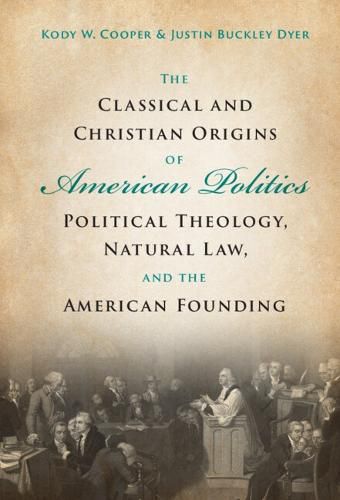Readings Newsletter
Become a Readings Member to make your shopping experience even easier.
Sign in or sign up for free!
You’re not far away from qualifying for FREE standard shipping within Australia
You’ve qualified for FREE standard shipping within Australia
The cart is loading…






There has been a considerable amount of literature in the last 70 years claiming that the American founders were steeped in modern thought. This study runs counter to that tradition, arguing that the founders of America were deeply indebted to the classical Christian natural-law tradition for their fundamental theological, moral, and political outlook. Evidence for this thesis is found in case studies of such leading American founders as Thomas Jefferson and James Wilson, the pamphlet debates, the founders' invocation of providence during the revolution, and their understanding of popular sovereignty. The authors go on to reflect on how the founders' political thought contained within it the resources that undermined, in principle, the institution of slavery, and explores the relevance of the founders' political theology for contemporary politics. This timely, important book makes a significant contribution to the scholarly debate over whether the American founding is compatible with traditional Christianity.
$9.00 standard shipping within Australia
FREE standard shipping within Australia for orders over $100.00
Express & International shipping calculated at checkout
There has been a considerable amount of literature in the last 70 years claiming that the American founders were steeped in modern thought. This study runs counter to that tradition, arguing that the founders of America were deeply indebted to the classical Christian natural-law tradition for their fundamental theological, moral, and political outlook. Evidence for this thesis is found in case studies of such leading American founders as Thomas Jefferson and James Wilson, the pamphlet debates, the founders' invocation of providence during the revolution, and their understanding of popular sovereignty. The authors go on to reflect on how the founders' political thought contained within it the resources that undermined, in principle, the institution of slavery, and explores the relevance of the founders' political theology for contemporary politics. This timely, important book makes a significant contribution to the scholarly debate over whether the American founding is compatible with traditional Christianity.